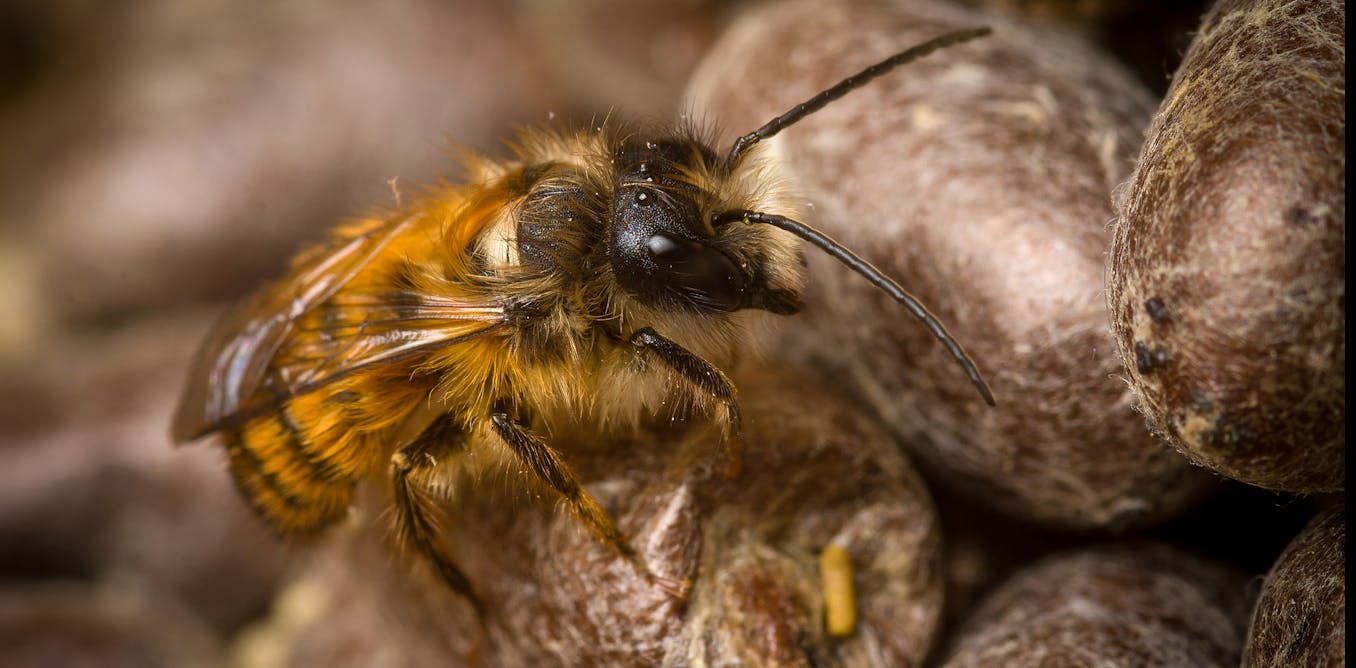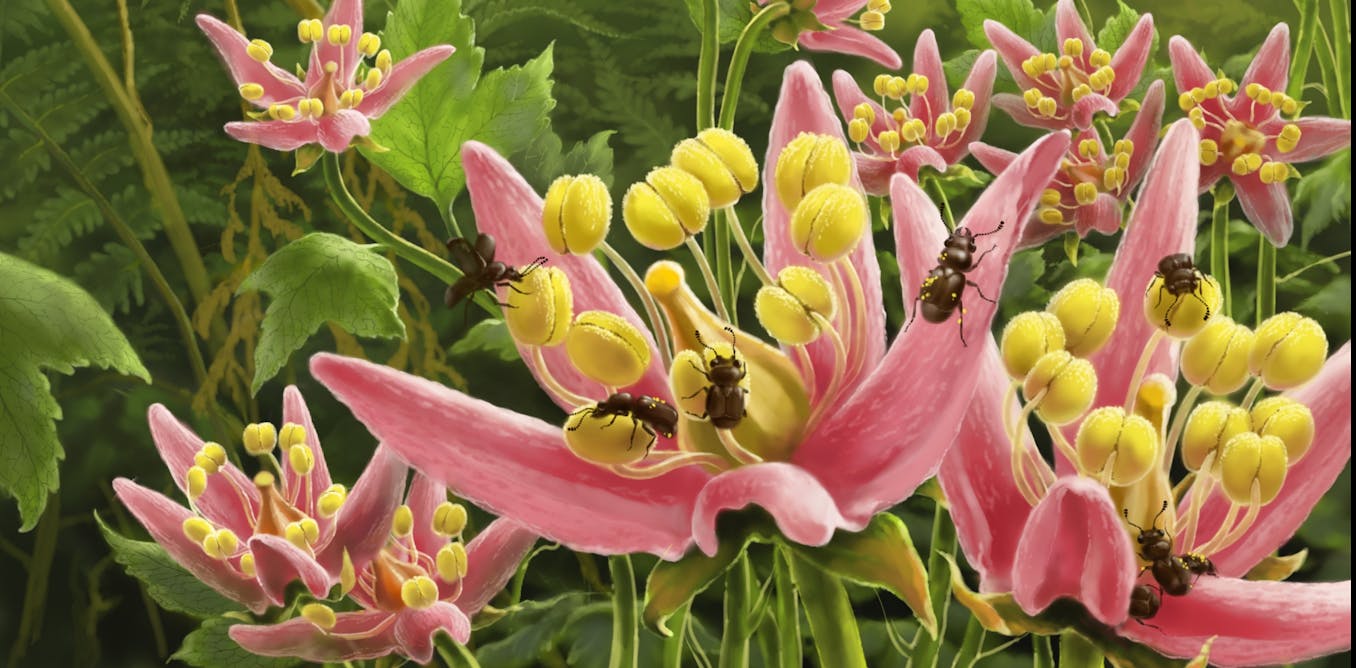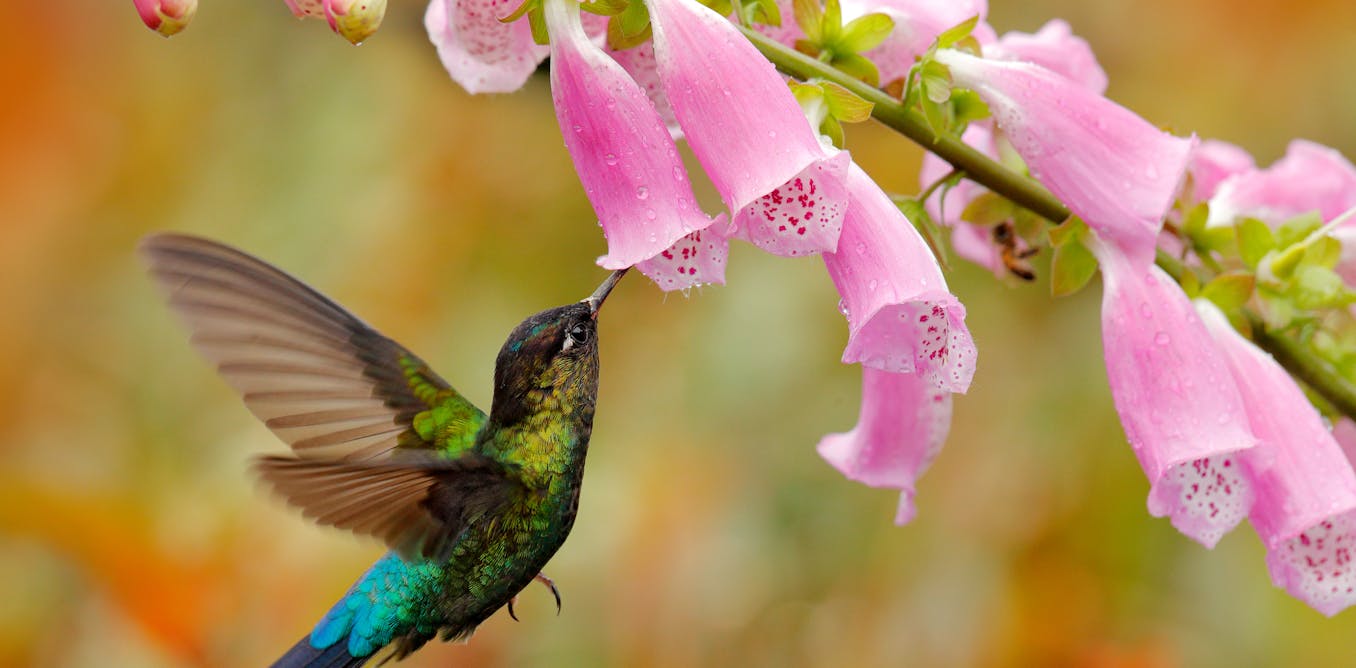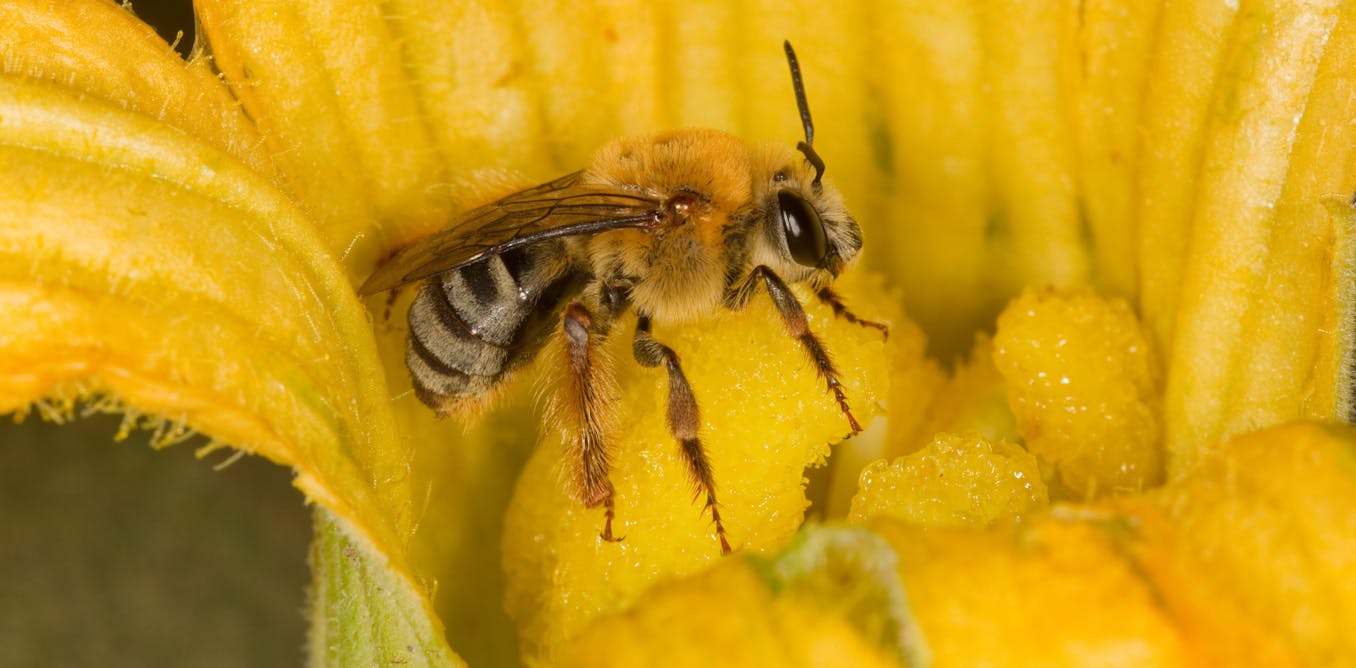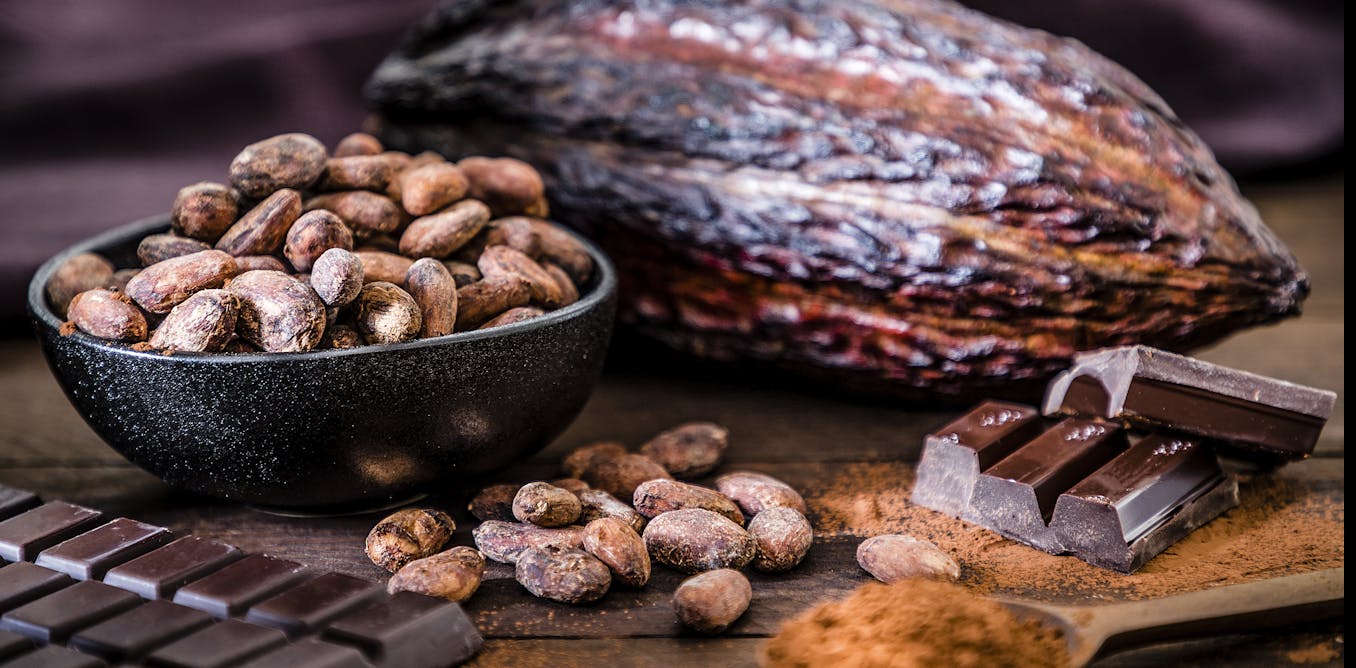Feeding experiments reveal baby bees love carbs – here's why that matters
First ever feeding experiments reveal that solitary bees need to carb-load – and can be picky when it comes to dieting.
Elizabeth Duncan, Associate Professor of Zoology, University of Leeds •
conversation
April 20, 2021 • ~7 min
April 20, 2021 • ~7 min
How colonialism transformed foxgloves – and why hummingbirds might have had a role
We studied how foxgloves taken to the Americas less than 200 years ago have changed compared to natives in Europe.
Maria Clara Castellanos, Lecturer in Evolution, Behaviour and Environment, University of Sussex •
conversation
April 13, 2021 • ~6 min
April 13, 2021 • ~6 min
How colonialism transformed foxgloves – and why hummingbirds might be the reason
We studied how foxgloves taken to the Americas less than 200 years ago have changed compared to natives in Europe.
Maria Clara Castellanos, Lecturer in Evolution, Behaviour and Environment, University of Sussex •
conversation
April 13, 2021 • ~6 min
April 13, 2021 • ~6 min
A common soil pesticide cut wild bee reproduction by 89% – here's why scientists are worried
EU-banned pesticides could not only threaten wild bees where they eat, but where they sleep too.
Philip Donkersley, Senior Research Associate in Entomology, Lancaster University •
conversation
March 2, 2021 • ~6 min
March 2, 2021 • ~6 min
Tiny cacao flowers and fickle midges are part of a pollination puzzle that limits chocolate production
Entomologists wonder if the insects currently pollinating farmed cacao are the right ones for the task.
DeWayne Shoemaker, Professor and Department Head, Entomology and Plant Pathology, University of Tennessee •
conversation
Feb. 10, 2021 • ~6 min
Feb. 10, 2021 • ~6 min
/
6


